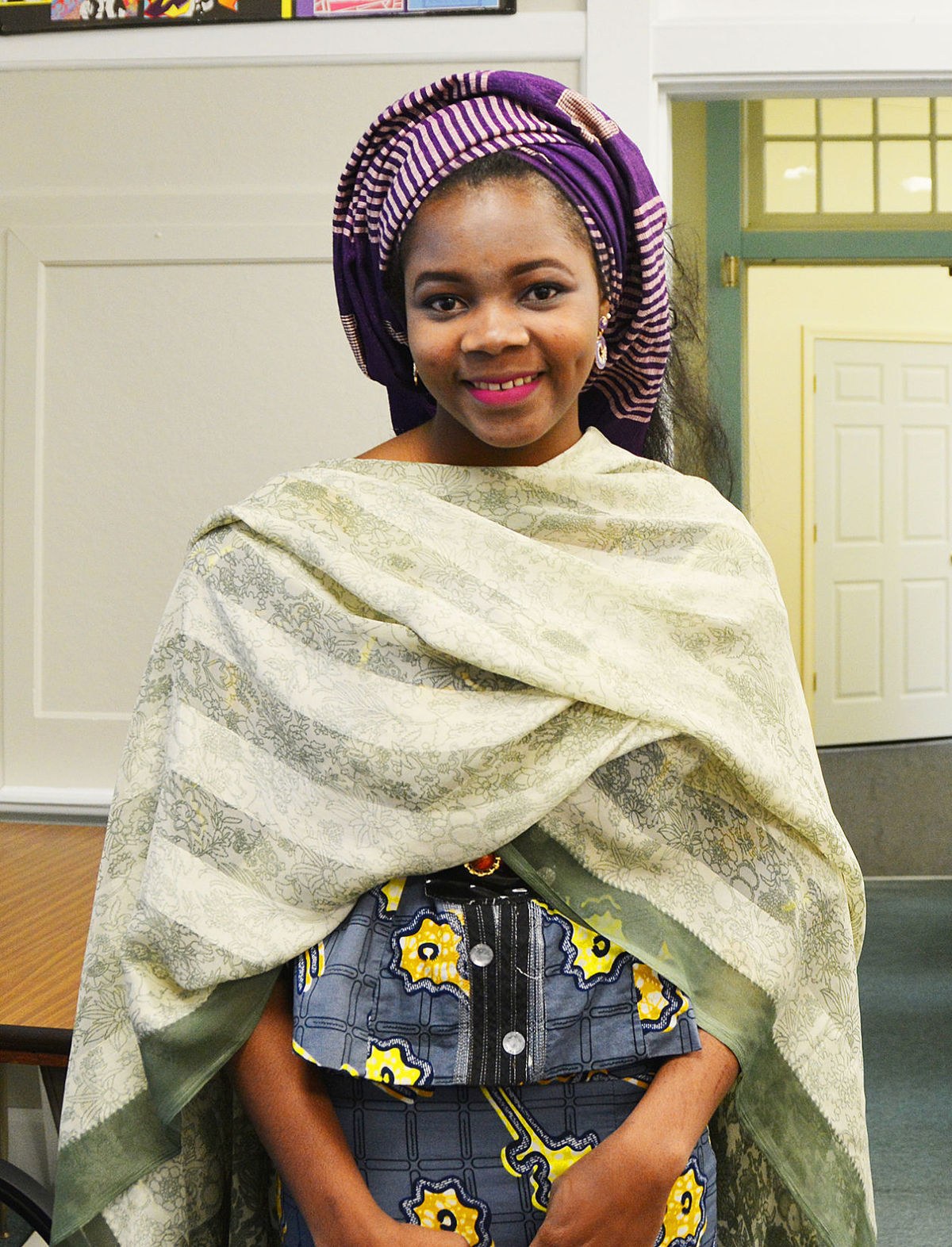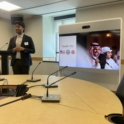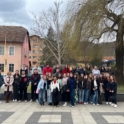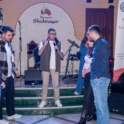Abdulaziz reflects on the highlights from serving as a mentor for CEW.
STORIES
Nigerian Exchange Student Shares Her Story

By Andrea F. Carter
This article is about Nana Umar (YES 2017-2018 Nigeria, hosted by AFS in East Falmouth, Massachusetts). It was originally published in The Falmouth Enterprise on January 25, 2018. To see the original article, please click here.
Nigerian exchange student Nana Umar shared her impressions about living in Falmouth and her own culture at the Falmouth School Committee meeting on Tuesday, January 23. The differences are many.
Having arrived in August, Nana who is 17, is a student at Falmouth High School.
“I wanted to learn about the American culture and clear up some stereotypes,” Nana said about her decision to come here. “It’s kind of good (that) I start to clear it up.”
She said that before leaving her country, people warned her that America was unsafe and Americans were unfriendly. However, Nana said that she was raised by her parents to not to buy into stereotypes and was eager to see for herself what America had to offer.
So far, she has been happy with her experience, pleased on how “good it is to be here” and impressed by the hospitality she has received in Falmouth.
Nana has been surprised by the cold weather and seeing ice on the ocean and alongside the road.
“I didn’t believe it when they told me it could get colder,” she said. “It’s kind of like a miracle to me.”
She also described experiencing “sticker shock” at the supermarket, where a small bag of cashews can be twice as much as a larger bag.
“It’s the same cashew,” she said.
Nana spoke about her country, which is ethnically varied and has the largest population in Africa, with 186 million people. There are 520 languages spoken and 250 ethnic groups. Fifty percent of its citizens practice Islam, 40 percent are Christian, with 10 percent practicing local religions, she said.
A number of ethnic groups make up the cultural composition of the country. The most common are Hausa, which are predominantly Muslim and the Yoruba, both Christian and Muslim. Nana’s family is from a smaller group, the Ebira. She and her family practice Islam and live in Kaduna. On Tuesday Nana wore the traditional Ebira headscarf and dress.
“This is where I get homesick,” she said when she showed photographs of cultural cuisine.
The dishes included rice cakes, fried plantains, a meal made with black-eyed peas, and yellow fried rice.
She also showed photos of the democratically elected president, Muhammadu Buhari, and people in Nigeria.
Agriculture and petroleum are two top economic resources, and natural resources include tin, iron, ore, gold and limestone.
At home she woke up at 4 o’clock in the morning to say her prayers and to get ready for school, which began at 7 AM. As head student, which she defined as president of the school, she had to arrive earlier than most students.
“It’s not difficult because it’s not cold and dark (like here),” she said about rising early.
Students have uniforms and are expected to present themselves in a certain way. Fingernails must be clean and hair braided.
She said that the cafeteria food here at Falmouth High School is not bad, but sometimes does not meet her tastes. On days when the meal is a ham sandwich, she has to adapt because Muslims do not eat pork.
“I am going to just stick with the chips,” she said of those days.
One thing she has noticed here at Falmouth is that students talk back and can be rude to their teachers. At home, if you are rude you are suspended for a week and must clean the school bathrooms while keeping up with your assignments and workload, she said.
After a week, suspended students must ask for the teacher’s forgiveness before attending class again. If they do not receive forgiveness, their name is placed in a “black book,” which can affect later academic success.
“Teachers usually accept an apology,” Nana said.
In Nigeria, Nana attended an all-girls high school and had 13 subjects, which are taught in English. Nigeria had been a British colony. Only having six classes at Falmouth High School sounded easier at first but the assignments here have proved challenging.
Students in Nigeria play sports like students here but have more in-school debates and competitions than she has seen here.
In Nigeria she and her friends spend time together at restaurants, stores or at her mother’s hair salon and have sleepovers on the weekend. Nana has made friends here but her social life is less active.
“Teenagers here are really busy,” she said.
Nana won a competition to come to the U.S. through the Kennedy-Lugar Youth Exchange and Study program, which is run through the United States State Department and started as an exchange for American students and those from Muslim countries to learn about each other. Students live with host families while they are abroad.
Nana is living with Falmouth Public Schools science department head Christine Brothers and is here for the whole school year. She hopes to attend college in the United States as well.
“You are very brave,” school committee member Melissa M. Keefe said. “I give you a lot of credit.”
School committee chairman Kelly A. Welch asked if her American friends will visit her in Nigeria one day. Nana said maybe in the future but not now.
“Nigeria is still in turmoil,” she said.
The Nigerian Islamic militant group Boko Haram’s terrorist activities and other ethnic rivalries have caused instability in the country.
Nana also cleared up some misconceptions Americans have about being from Africa. People ask if she has elephants in her back yard, how often she sees lions and if she has a monkey or gorilla as a pet, or if she plays with snakes.
“I have seen an elephant at the zoo,” she said. “And I am afraid of snakes.”





